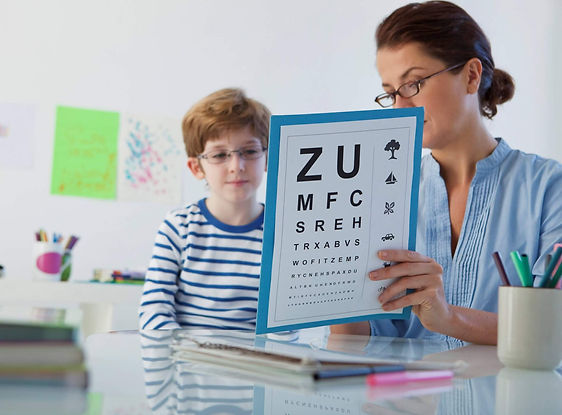Speech Therapy & Occupational Therapy
Since January 2015
• 2500 S.W. 107th Avenue, Suite #39, Miami, FL 33165 • Tel: 786-631-3129

Developmental Milestones Chart
Track your child's development with “A Milestone Therapy” chart:
We at “A Milestone Therapy,” believe that every child develops at his or her own pace. However, we also know that milestones help parent’s measure how their child is progressing. And for this reason, we have posted on our website, a developmental tracker chart. So, feel free to assess your child's development with our tracking chart online. We hope this information will help you better understand and build your child’s life skills.
If Receptive Language difficulty exists:
The child demonstrates difficulty:
• Understanding what other people say
• Understanding simple (what, where, when, why) questions
• Remembering details from verbally presented material
• Following verbal directions/commands
• Demonstrates difficulty organizing ideas
• Requires extra time to understand information
• Demonstrates difficulty in phonological awareness including spoken language, rhyme (recognition and production, syllable (segmentation, blending, and deletion) and phonemes (identification, blending, segmenting and manipulation of sounds)
If Expressive Language difficulty exists:
The child demonstrates difficulty:
• The child has difficulty getting the words he wants to say and uses invented words/sounds such as “um” instead.
• Demonstrates difficulty formulating sentences (uses wrong order, uses incorrect verb/action words, omits words.
• Difficulty expressing daily events/stories in order
• Uses below age/immature vocabulary compare to other children of the same age
• Repeats phrases, sentences or part of what is being said by an adult
Speech Production deficits exist if:
The child demonstrates difficulty:
• It is difficult for adults and peers to understand the child when he/she is speaking
• The child demonstrates repetitions of (sounds, syllables, words) when trying to speak
90% of children have mastered these sounds by the following ages:
2 years old — p, d, m, w, b, n
3 years old — l, b, k, g.
4-5 years old — f, v, y
5-7 years old — s, z, l, r, sh, ch, th, & blends
Pragmatic/Social Language deficits exist if:
The child demonstrates difficulty:
• The child does not participate in play/group activities
• The child does not code switch language styles (for example: changes tone when talking to peers and when talking to an authority such as teacher)
• Demonstrates difficulty making inferences from life or books
•Demonstrates difficulty interpreting things that are not concrete or feelings/emotions
• Demonstrates difficulty talking turns, commenting or asking questions
• Demonstrates difficulty understanding body language or non-verbal hints
